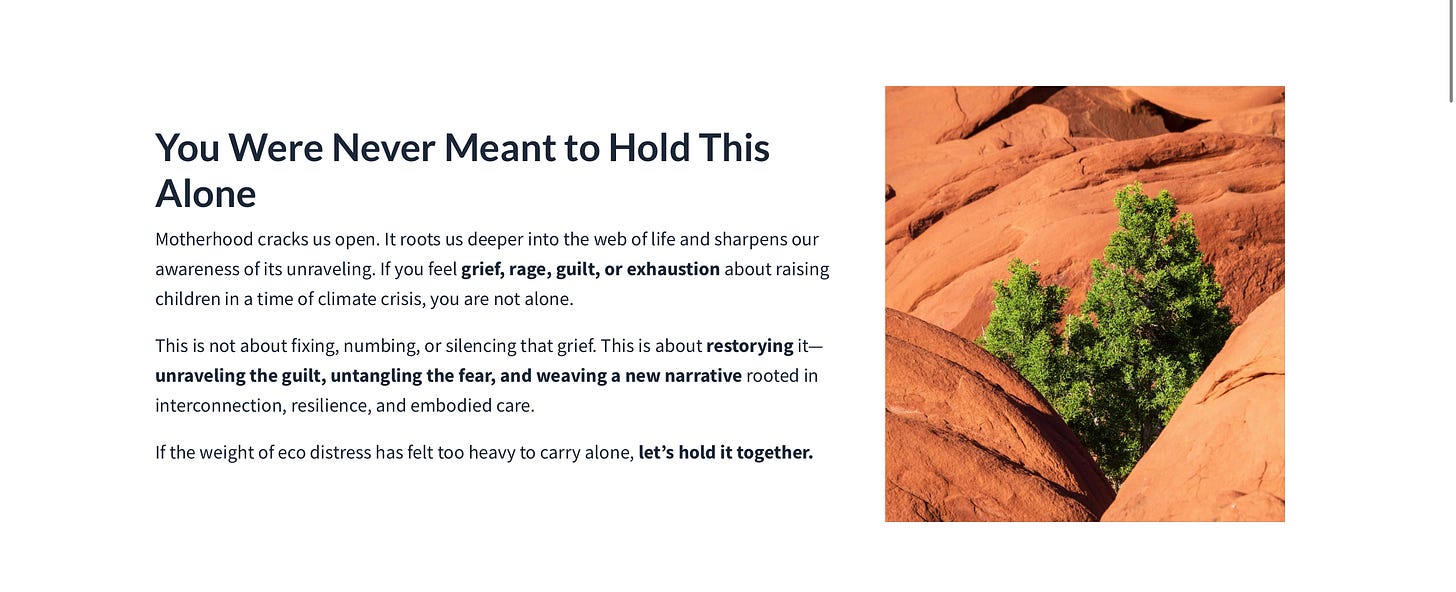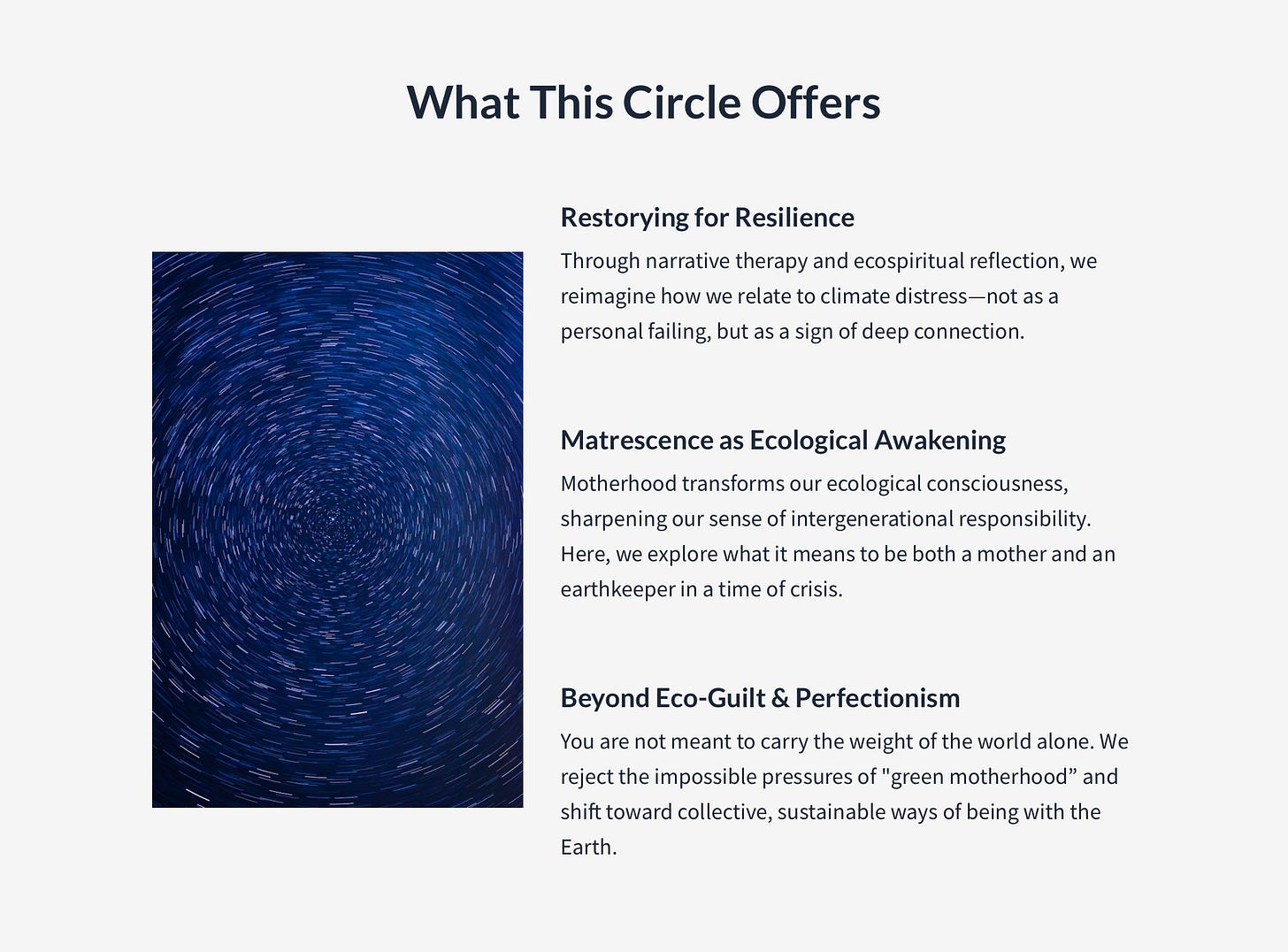We Were Never Meant to Grieve Alone: Holding Eco-Grief in Community
For the mothers who feel the weight of the world—your grief was never meant to be carried alone. Our first circle of 2025 is now open—join us in transforming sorrow into connection.
There is a certain grief that comes with mothering in this time.
It is not only the weight of sleepless nights, the stretching of self across the needs of another, the quiet mourning of who we used to be. It is the grief of looking at the world and wondering:
How do I raise a child in this?
The fires. The floods. The headlines. The small, steady disappearances—the birds no longer at the feeder, the bees less frequent in the garden, the once-clear sky now heavy with smoke.
There is no name for the kind of sorrow that comes when love meets collapse.
But it is real.
And you are not alone in feeling it.
Eco-Grief and the Work of Mothering
My research in maternal ecopsychology on ecological identity development has shown what many of us have felt in our bones: that motherhood is a threshold into deeper ecological awareness.
Matrescence—the developmental transition into motherhood—shifts our relationship to the world itself. Before children, climate change might have felt distant, abstract. After birth, it becomes visceral. It lives in the body, in the future we imagine for our children.
Mothers hold a double burden. We are tasked with both protecting life and absorbing the weight of its potential loss. The pressure to be “good” environmental stewards—buying the right things, making the right choices—can feel crushing, even as we know individual action is not enough .
We grieve not just for ourselves, but for generations to come. And grief that is carried alone has nowhere to go. It calcifies. It turns inward.
But grief is not meant to be a private weight.
In every healthy system, loss is metabolized in community. The forest does not ignore the falling of a great tree; it responds. The mycelial network redistributes, new growth emerges from the decay.
This is what grief needs. Not suppression, but movement. Not isolation, but interconnection.
What Changes When We Grieve Together
The research is clear: sharing eco-grief in community changes everything . When we gather:
The weight shifts. What felt unbearable alone becomes something held between us, softened by recognition.
Ecological identity expands. Mothers in my support groups report a deepened sense of belonging—not just to human community, but to the larger web of life .
New narratives emerge. Instead of feeling paralyzed by loss, we begin to root ourselves in what remains. We find our place, our next step, the ways we can still contribute.
Grief is not an endpoint. It is a threshold.
A Space to Hold This Together
The Restorying Ecodistress mothers’ support circle was created with this in mind. The Restorying Ecodistress circle is designed to help mothers process eco-grief, deepen their ecological identity, and reclaim a sense of belonging.
This is not about diagnosing or pathologizing grief. It is about learning to hold it differently—in a way that strengthens rather than isolates, that deepens rather than diminishes.
This group is informed by my academic research and clinical work, integrating what we know about:
Matrescence and ecological identity development—how motherhood reshapes our connection to the living world.
Narrative therapy and meaning-making—how the stories we tell about grief determine how we carry it.
Ecospirituality and interconnection—how expanding our sense of belonging beyond the human can create a deeper holding field for sorrow.
This is a space where you do not have to explain why you care so deeply.
Where the words “I don’t know how to hold this” are met with understanding, not dismissal.
Where grief is not just shared—it is transformed.
If you are carrying this weight, you do not have to carry it alone.
If this speaks to you, I invite you to join us.
We hold this together.
Warmly,








